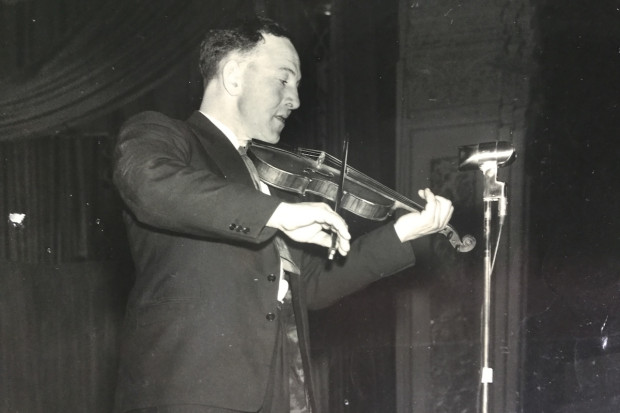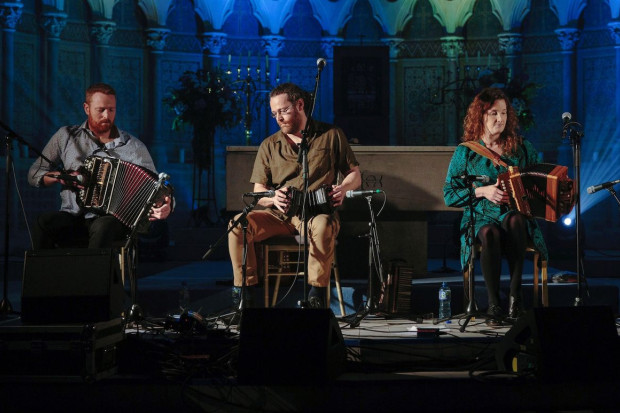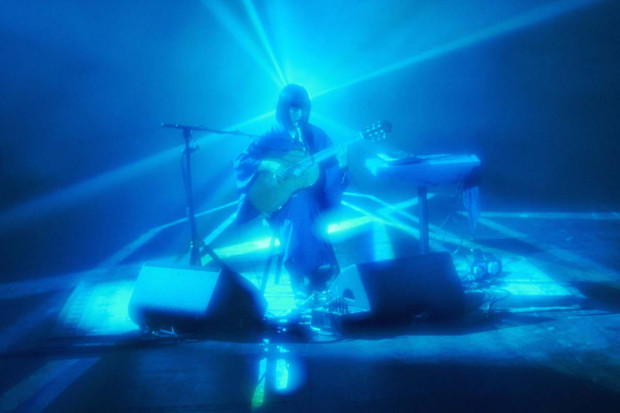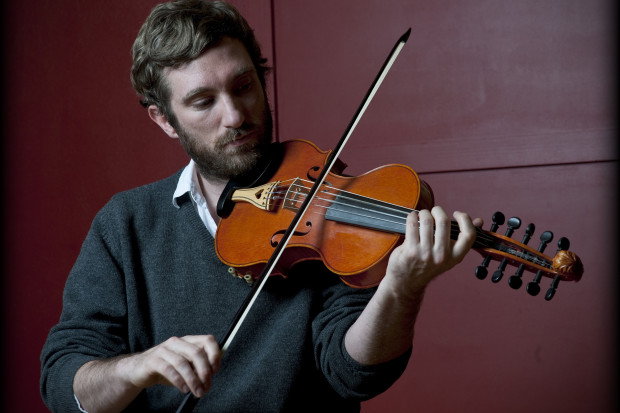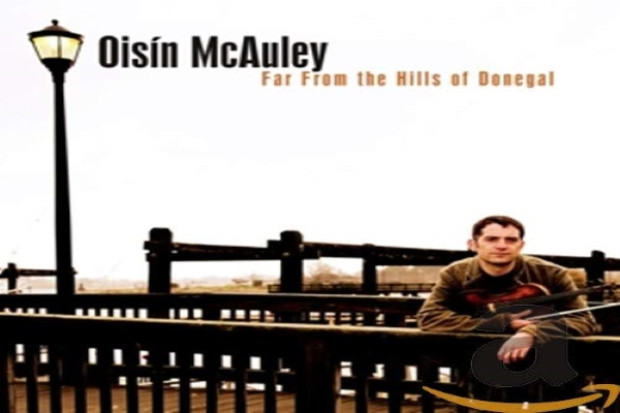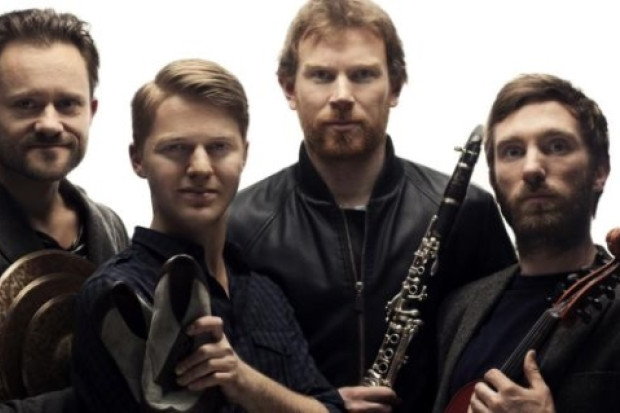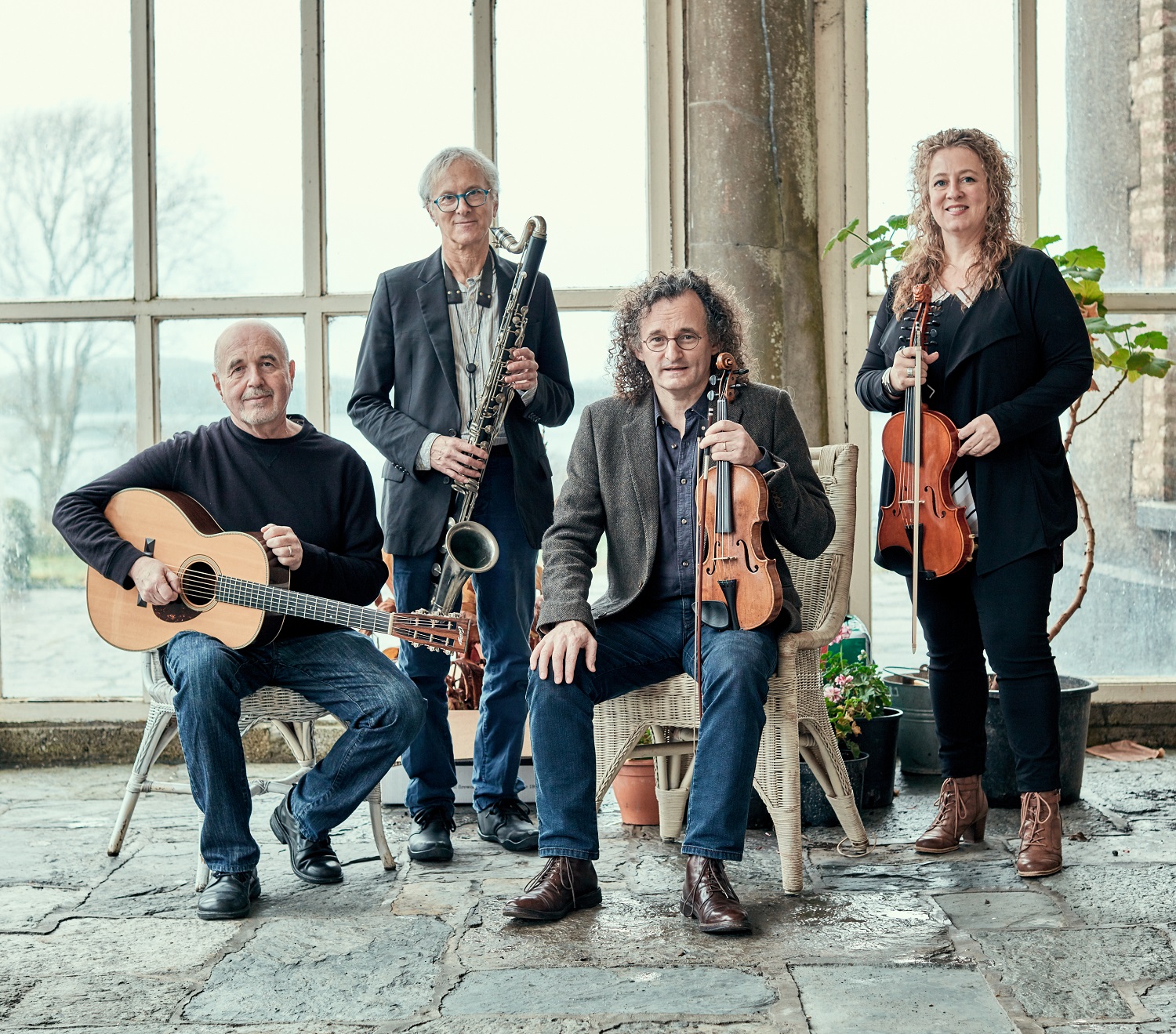
The Martin Hayes Quartet
Room for Everyone
Fiddle-player Martin Hayes has branched out into many collaborations in recent years, from the trios Triúr and The Teetotallers, and his duet with David Power, to forming the hugely successful band The Gloaming.
The Blue Room by The Martin Hayes Quartet is his most recent album, and the fruit of another collaborative exercise. Playing again with long-time collaborator guitarist Denis Cahill, Hayes’s Quartet also includes bass clarinettist Doug Wieselman, who has a jazz background, and fiddle-player and violist Liz Knowles whose expertise spans early music, classical and traditional music.
The opening track, ‘The Boy in the Gap’, is a statement of intent, beginning with a long, beautiful improvisation on bass clarinet, followed by a textured playing of the traditional reel by Hayes et al that creates a free-wheeling atmosphere of improvisatory inclusion. There is room here for everyone, the arrangement seems to say.
Imitation and respect
‘Mo Mhúirnín Bán’, half-way through the album, stopped me in my tracks on first listen. Hayes plays this beautiful air over a sparse guitar accompaniment. Wieselman then responds by playing the same air with the same ornamentation. The clarinettist’s reaching for the same inflections as the violin, and the attitude of imitation and respect evident in his playing, is a revelation.
Despite the melding of styles and approaches, the traditional melodies remain predominant on The Blue Room – providing a playground for all the players to interact within. I particularly enjoyed the contrapuntal elements in ‘Brennan’s Reel’, and the freedom of the musicians to enter the fray as different but equal voices. ‘The Orphan’ also has treasure to yield, beginning with the traditional jig but soon morphing into a close harmonic interplay between the two string instruments. Adding further complexity, Cahill’s grounding chords interface grittily with the percussive growls of the clarinet. The sonorities of the different string instruments are beautifully exploited as the piece rubs along with the lone high violin motif adding another contrast.
More melancholy and pensive, the start of ‘Port Sadbh’, a jig written by Peadar Ó Riada for his youngest daughter, belies its positive ending. The receptivity of the players means that the reintroduction of a subtle lilt on violin moves the tune from lyrical and pensive to robust and jolly all in the space of a few bars.
Reframing
The tunes where the fiddle is embraced by an elegiac framing of restrained and unfussy accompaniment on the clarinet and viola are also very powerful. I’m thinking here of ‘My Mind Will Never Be Easy’, ‘Tommy Peoples’ Reel’ and ‘Easter Snow’.
Throughout the album, Knowles brings vibrant contributions in the shape of rhythmic and harmonic figures that add an interrogative reframing to ‘The Humours of Scariff’ and which open up new possibilities of how we hear these tunes. I especially appreciated the baroque elegance of the harmonising swoops which she adds to ‘Paddy Fahy’s Reel’.
As a testament to the power of music to connect artists across musical boundaries, and to generate joy in that connection, this album is not just successful, it is startlingly beautiful. Despite all that has been done by Hayes in his collaborations with others to date, I feel that there are still plenty of worlds left for him to explore.
For more, visit www.martinhayes.com/martin-hayes-quartet
–
This review is published as part of a new scheme for music writers in County Clare. The Journal of Music/Clare County Council Music Writer Mentoring Scheme is supported by Clare Arts Office and was launched in March 2017. Over 12 months, the editorial team of The Journal of Music are working with four new writers – Deirdre Clare, Ian Bascombe, Ruth Smith and Alan Reid – to expand the magazine’s coverage of musical life in the county. The first seven reviews focussed on the Riches of Clare concert series and Floriane Blancke (Ian Bascombe), Paul Brady at Glór (Deirdre Clare), Lisa Hannigan and An Tara (Ruth Smith), and The Boruma Trio and Florence Fahy (Alan Reid).
This is one of three schemes currently underway. The second – supported by Galway City Council – supports five new writers to cover musical life in Galway City. The first six reviews include Overhead, the Albatross and Talos (Vincent Hughes), RTÉ Concert Orchestra (Jake Morgan), Brian Wilson (Dylan Murphy), Lankum (Shannon McNamee) and Loah (Julie Seagrave).
The third scheme, for writers about music in Northern Ireland, is supported by the Arts Council of Northern Ireland. For more, visit https://goo.gl/hVPVr5
For further details on the background to the schemes, please visit https://goo.gl/QY83ga.
Published on 28 February 2018
Deirdre Clare is a piano player and singer and writes her own material, both classical and contemporary folk. Her piece for viola and tape, 'Fite Fuaite', was chosen by Roger Doyle to be included in a series of contemporary music concerts and she has recently written music for Barry Casey’s play, 'Another August'. Deirdre teaches piano at Coole Music in Gort.












